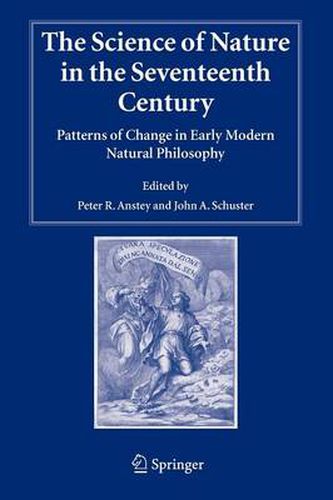Readings Newsletter
Become a Readings Member to make your shopping experience even easier.
Sign in or sign up for free!
You’re not far away from qualifying for FREE standard shipping within Australia
You’ve qualified for FREE standard shipping within Australia
The cart is loading…






This title is printed to order. This book may have been self-published. If so, we cannot guarantee the quality of the content. In the main most books will have gone through the editing process however some may not. We therefore suggest that you be aware of this before ordering this book. If in doubt check either the author or publisher’s details as we are unable to accept any returns unless they are faulty. Please contact us if you have any questions.
The seventeenth century marked a critical phase in the emergence of modern science. But we misunderstand this process, if we assume that seventeenth-century modes of natural inquiry were identical to the highly specialised, professionalised and ever proliferating family of modern sciences practised today. In early modern Europe the central category for the study of nature was natural philosophy , or as Robert Hooke called it in his Micrographia, the Science of Nature. In this discipline general theories of matter, cause, cosmology and method were devised, debated and positioned in relation to superior disciplines, such as theology; cognate disciplines, such as mathematics and ethics; and subordinate disciplines, such as the mixed mathematical sciences of astronomy, optics and mechanics. Thus, the Scientific Revolution of the Seventeenth Century did not witness the sudden birth of ‘modern science’ but rather conflict and change in the field of natural philosophy: Aristotelian natural philosophy was challenged and displaced, as thinkers competed to redefine natural philosophy and its relations to the superior, cognate and subordinate disciplines. From this process the more modern looking disciplines of natural science emerged, and the idea of a general Science of Nature suffered a slow demise. The papers in this collection focus on patterns of change in natural philosophy in the seventeenth century, aiming to encourage the use and articulation of this category in the historiography of science. The volume is intended for scholars and advanced students of early modern history of science, history of philosophy and intellectual history. Philosophers of science and sociologists of scientific knowledge concerned with historical issues will also find the volume of relevance. Above all, the volume is addressed to anyone interested in current debates about the origin and nature of modern science.
$9.00 standard shipping within Australia
FREE standard shipping within Australia for orders over $100.00
Express & International shipping calculated at checkout
This title is printed to order. This book may have been self-published. If so, we cannot guarantee the quality of the content. In the main most books will have gone through the editing process however some may not. We therefore suggest that you be aware of this before ordering this book. If in doubt check either the author or publisher’s details as we are unable to accept any returns unless they are faulty. Please contact us if you have any questions.
The seventeenth century marked a critical phase in the emergence of modern science. But we misunderstand this process, if we assume that seventeenth-century modes of natural inquiry were identical to the highly specialised, professionalised and ever proliferating family of modern sciences practised today. In early modern Europe the central category for the study of nature was natural philosophy , or as Robert Hooke called it in his Micrographia, the Science of Nature. In this discipline general theories of matter, cause, cosmology and method were devised, debated and positioned in relation to superior disciplines, such as theology; cognate disciplines, such as mathematics and ethics; and subordinate disciplines, such as the mixed mathematical sciences of astronomy, optics and mechanics. Thus, the Scientific Revolution of the Seventeenth Century did not witness the sudden birth of ‘modern science’ but rather conflict and change in the field of natural philosophy: Aristotelian natural philosophy was challenged and displaced, as thinkers competed to redefine natural philosophy and its relations to the superior, cognate and subordinate disciplines. From this process the more modern looking disciplines of natural science emerged, and the idea of a general Science of Nature suffered a slow demise. The papers in this collection focus on patterns of change in natural philosophy in the seventeenth century, aiming to encourage the use and articulation of this category in the historiography of science. The volume is intended for scholars and advanced students of early modern history of science, history of philosophy and intellectual history. Philosophers of science and sociologists of scientific knowledge concerned with historical issues will also find the volume of relevance. Above all, the volume is addressed to anyone interested in current debates about the origin and nature of modern science.